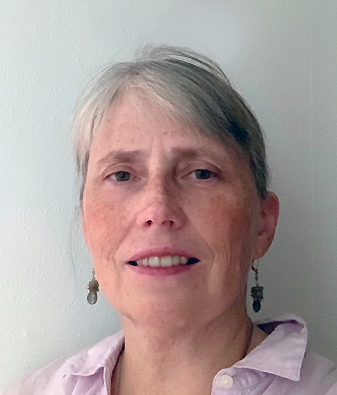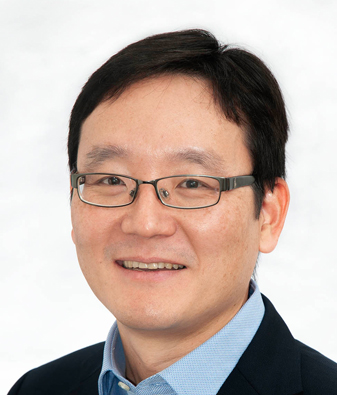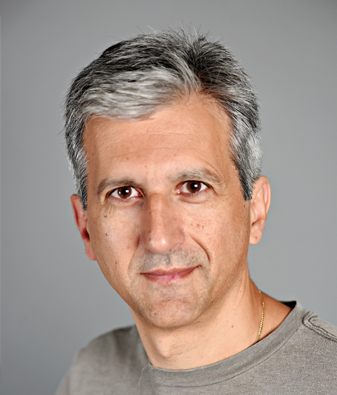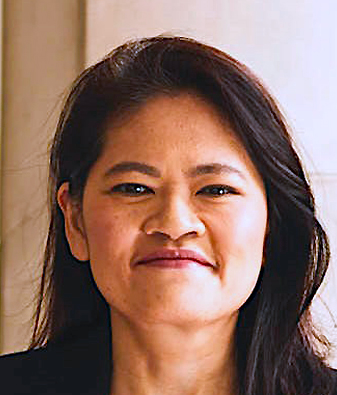The Faculty of Arts & Science consistently produces innovative world-class research across all disciplines. Launched last year, the Dean’s Research Excellence Awards recognize faculty members whose research achievements have been cited as especially impactful.
The six recipients of this year’s Dean’s Research Excellence Awards — Rachel Barney, Carl Knappett, Young-June Kim, Kyros Kutulakos, Jennifer Murphy and Lynette Ong — will receive $10,000 to further their professional development.
The awards were established to help accomplished mid-career researchers to compete successfully in national award competitions. Winners have contributed a wealth of research that has had a sustained influence in their chosen disciplines.
“It is with incredible pride that I congratulate this year’s recipients,” says Dean Melanie Woodin. “The scholars we are honouring this year reflect the excellence, depth, and breadth of research in the Faculty of Arts & Science. They are just one measure of the contributions they are making — not only to the university, but the world.”
2023 winners:

Rachel Barney, Philosophy
Rachel Barney is internationally recognized as one of the world’s most innovative and creative researchers on ancient Greek philosophy. Her research ranges from the early sophists to the late Neoplatonic commentator Simplicius, but focuses on Plato. She is currently working on two book projects. The first, How to Know Everything: Protagoras and the Origins of Philosophical Argument, gives a new account of one the most important figures in ancient Greek thought, the sophist Protagoras. The second book project explores the political thought of Plato’s Republic which she believes is rich in ideas which might serve us well in political discussion in the 21st century. These include Plato’s discussion of human irrationality; his theory of justice; his insistence on the necessity of separating wealth and political power; and his emphasis on the political importance of culture and ideology.

Carl Knappett, Art History
Carl Knappett is a leading scholar of Aegean prehistory where he specializes in the protohistoric societies of the Bronze Age east Mediterranean, most specifically Minoan Crete. Conducting multisite fieldwork, and through ancient ceramic reconstruction, he attempts to understand various aspects of past social life, from crafting activities to consumption choices, asking why ancient societies made and used so many containers, and with such variety. Recently, his fieldwork morphed from purely ceramic study into a full-blown excavation at the site of Palaikastro on Crete. Now architecture, stone, metal, plaster and bioarchaeological finds also feature prominently in his research. Knappett is a leader in the early adoption of network analysis in archaeology, as well as developing innovative, interdisciplinary approaches to the study of material and visual culture.

Young-June Kim, Physics
Young-June Kim is a leading experimental physicist in the field of quantum condensed matter physics and quantum materials such as high-temperature superconductors, spin liquids and topological insulators and metals — all of which hold great potential for the future of electronic technologies such as high-density information storage and quantum computers. His approach of combining synthesis of novel materials with experimental studies using advanced x-ray and neutron spectroscopies, is exemplified in his impactful discovery of a type of spin liquid that could be used to build a “topological” quantum computer. Kim’s research group is at the forefront of this new area of discovery. In addition, his research has been disseminated in 150 publications in top journals and he has inspired many young physicists to join scientific pursuits.

Kyros Kutulakos, Computer Science
Kyros Kutulakos’ research focus is computer vision and computational photography. With his creative and rigorous approach, he has made transformational impact through deep theoretical discoveries and produced disruptive new visual sensing techniques. His highly influential work includes a theory of computational light transport, advances in the estimation of 3D structures from multiple 2D photos of a scene, 3D visual sensing under natural lighting conditions, computational imaging on the electric grid, and a video camera capable of showing the propagation of light itself. He has won a remarkable six best-paper awards at the highly competitive International Conference on Computer Vision (ICCV), the European Conference on Computer Vision (ECCV) and Computer Vision and Pattern Recognition (CVPR), as well as three awards for demonstrations of new imaging techniques.

Jennifer Murphy, Chemistry
Jennifer Murphy’s outstanding research contributions in atmospheric chemistry have established her as one of the world’s leading experts in measurements of ammonia. Her broad research program combines analytical method development, field measurements, and laboratory studies to obtain novel observations in the environment, and to evaluate the chemical and physical factors governing pollutant fate. Her team studies the interactions between the chemistry of the atmosphere and the biosphere. For example, her team discovered an important source of surprisingly high levels of ammonia in the Arctic marine atmosphere: emissions from migratory seabird colonies. Murphy also focuses on emissions of air pollutants and climate-relevant gases in urban regions, with the goal of informing mitigation policies. Her research program addresses many issues that are relevant to the UN’s sustainable development goals.

Lynette Ong, Political Science
An established, internationally acknowledged expert on China, Lynette Ong is jointly appointed to the Department of Political Science and the Munk School of Global Affairs & Public Policy. Conducting on-the-ground research in China since the late 1990s, her research interests intersect authoritarianism, contentious politics, and development, and have led to three published books and numerous other peer-reviewed publications. Her recently completed decade-long study on repression and state power in China — Outsourcing Repression: Everyday State Power in Contemporary China (Oxford University Press, 2022), draws on ethnographic research conducted annually from 2011 to 2019, and other quantitative data sources. Her field research required a range of ethnographic skills, including engaging in candid conversations with aggrieved citizens and skillful interactions with government officials.

